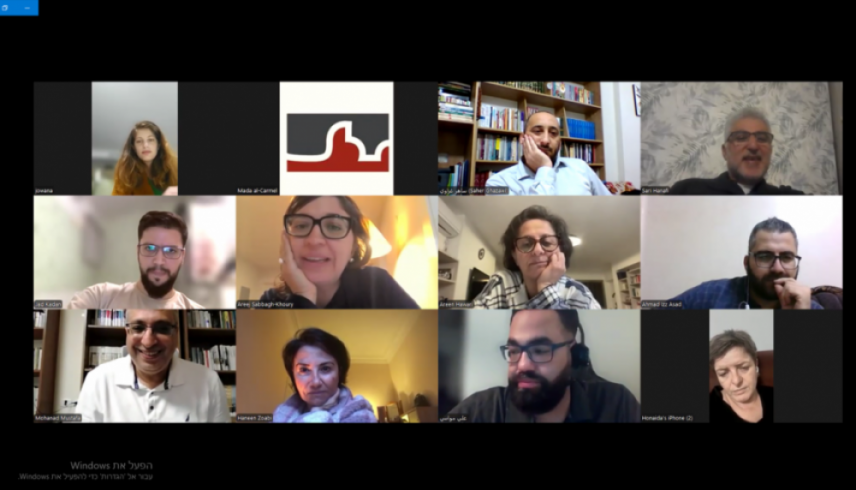
On Saturday, November 16, Mada al-Carmel held a meeting as part of its workshop on knowledge production. Mada hosted Sari Hanafi, Associate Professor in the Department of Sociology at the American University of Beirut, in a session dedicated to a discussion of chapters from a book that he co-authored with Rigas Arvanitis, titled Arab Research and Knowledge Society: A New Critical Perspective and published in 2015.
At the beginning of his lecture, Professor Hanafi introduced his own perspective about the nature of academic research, the globalization of research and its relationship to society, before turning to the types of research activities that are carried out in the Arab world. He offered a categorization through his answers to questions such as: Who and what is knowledge for? Is it for the academic community or for the general public? And is knowledge instrumental in nature and concerned with means, or is it critical and concerned with ends? He distinguished between two types of research and two target audiences, arguing that knowledge is either instrumental and means-oriented, or reflective and focused on ends. In his view, if knowledge concerned with means is targeted at an academic audience, then it is professional/ in nature, and if it is directed outside the academic community, it is policy-oriented. Conversely, if reflective knowledge is directed toward academics, then it is critical, whereas if it is not targeted academics, then it is for public consumption.
.png)
He argued – based on interviews conducted during a study that he carried out for the aforementioned book with professors working in the social sciences and the humanities, on a review of the professional biographies of researchers, on surveys, and on a literature review of hundreds of academic books, articles and position papers – that the dominant research in the Arab world is either policy-driven or professional in nature. In the Levant region, policy studies dominate, followed by purely professional studies, while in the Maghreb region professional studies are dominant, and then policy-oriented studies. However, in both cases, in the Levant and Maghreb alike, there are very few critical studies or studies targeted toward the general public. As part of his general argument, Professor Hanafi remarked on a positive development, namely the fact that the Arab world has, over the course of the past two decades, put itself on the global research map. However, its academic output has been relatively unproductive, he continued, emphasizing the importance of academic research that is relevant to society.